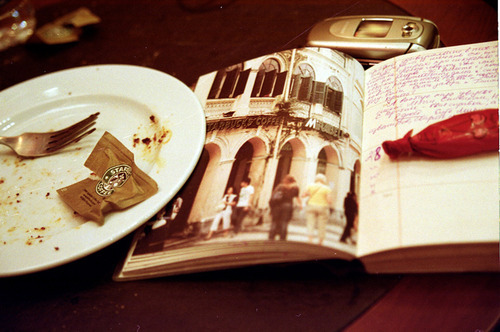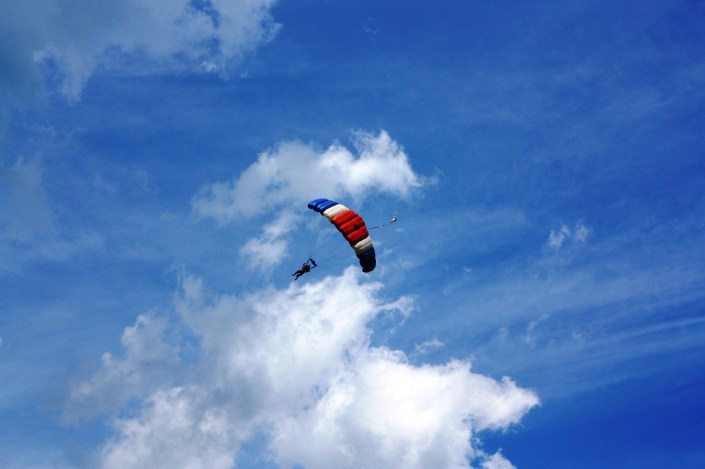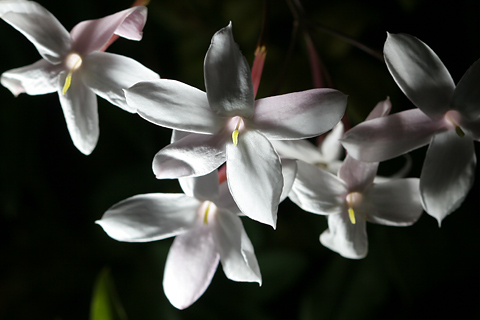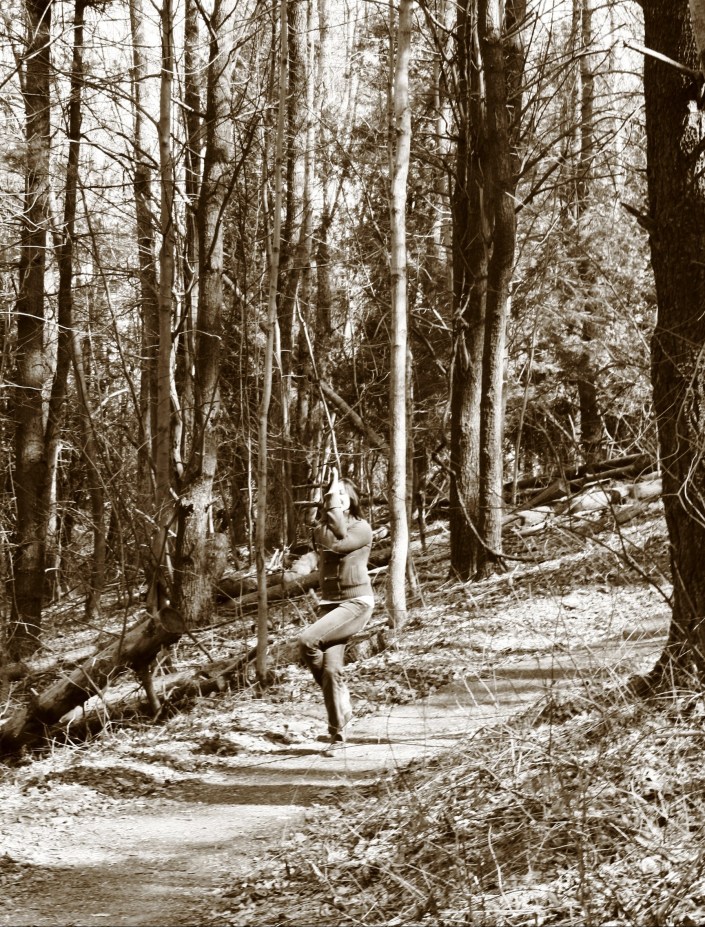New York
How to Make Friends in a New City – Tip #5
- No te preocupes! Don’t worry! Let the universe do its thing!
This is something I’ve learnt along the course of my somewhat peripatetic life the past 6 years: sometimes, people (and opportunities) fall into your lap in the most unexpected, unlooked for way; and these congenial little windfalls may be the best things that happen to you in your new home.
I remember a certain day in Ithaca, New York, where Z and I had moved right after getting married. Z was in class at Cornell, and I was busy cleaning, unpacking and ‘nesting’ in our new apartment, a ground-floor portion of a typical East Coast colonial house, when our gritty old landlord Carl ambled up to the front door, dressed in his customary red plaid shirt and classic blue jeans. “Hey there!” Carl hollered, “I wanted to introduce you to these nice folks,” he gestured towards the smiling young couple that followed him. “They’ve just moved to Ithaca from Mexico, and are thinking of renting from me as well!”
That was the first time I met Elsa & Silvano. Though we only spoke for five minutes, standing in the porch of Carl’s yellow-painted dollhouse, and thought they didn’t end up renting from him after all, they became our closest companions the 9 months we spent in Ithaca, and we still count them among our dearest friends.
So, just like that, someone may chance to cross your path, and you’ll hit it off with them like you never imagined. Maybe a friend of a friend puts you in touch with somebody they know who happens to live in the same city; and you turn out to be kindred spirits, Anne of Green Gables-style. Or maybe another like-minded soul, going through the same experiences as you, discovers you and contacts you through your blog!
I find it so interesting, how these connections are made – magically, almost – bringing complete strangers together through no deliberated effort. So, if you ever find yourself lost, alone and friendless in a new city, wondering why on God’s earth you ever transplanted yourself in the first place: don’t worry! It takes time for a plant to adjust to new soil, a new atmosphere. But once it gets over the wilting, drooping, moping period – ‘transplant shock’ in botanical terms – it thrives. In fact, if you don’t keep an eye, it may even start merrily taking over your garden, and you won’t know what to do! :)
Happy New Year from Madrid! Here are some photos we’ve taken of the city’s squares, streets and public spaces.
Read Tip #1,Tip #2, Tip #3, Tip #4, and the introductory post of this series!
How to Make Friends in a New City – Tip #2
- JOIN A RECREATIONAL CLASS
When you’re not a full-time student, nor do you have a “’real” job, nor any family in the city where you live, you end up with a lot of free time on your hands – which can be perfectly utilized by learning something you’ve always wanted, but never really got a chance to do. For instance, crocheting, or Thai kickboxing. Sushi-making, or calligraphy, ventriloquism, or, better yet, magic!

That something for me right now is Middle Eastern dancing. I carry my black coin-belt around with me wherever we go, and Google down a dance class whichever city we happen to be in. Apart from the fact that I love to do it, it’s also a good way of meeting people – perhaps even a potential friend, whom you are assured of having at least one thing in common with!
So, with all this in mind, I joined a classical Egyptian dance class in Madrid, taught by a half-Egyptian, half-Paraguayan, Spanish-born woman called Yasmina, who has been dancing professionally for 20 years.
On my first day, I arrived late. I had gotten confused when exiting the metro station, and walked in the wrong direction for a good ten minutes. “Darn it,” I thought, when I realized my (usual) mistake. “There’s no point of going to the class now. There won’t be space for me anyway!”
I was envisaging, of course, the type of dance classes I had attended in Berkeley and New York; a normally tiny square-shaped room packed to the seams with a variety of serious-faced girls in intimidating-looking leotards; the teacher (whom you could barely see) hollering instructions, bootcamp-style, over the pounding music; and me in the back row, whacking my hands into the wall every time we did snake arms, or getting trampled on by Rubber Girl next to me at every grapevine turn.
But here, when I scrambled into class, huffing and puffing, with a “Lo siento-ooo!”, I’m sorry-yyy, on my lips, I was shocked to find myself in a 60 ft x 30 ft, hardwood-floored room, glistening mirrors on not one but three sides, nicely framed posters on the cool blue walls, and Yasmina the teacher with two students – dressed in comfy track pants and T-shirts – quietly doing some stretches.
“Is the class already over?? Has everybody left??” I asked, bewildered.
No, they were just about to start! “Solo nosotras,” Yasmina smiled, flicking on the music. I couldn’t believe it! What joy! What pleasure! What a wonderful feeling to sway about freely my unusually long limbs without colliding into an animate or inanimate object at every move!
There were even times when the other two students didn’t show up, and it was just me and the teacher, whom I could pester with complaints and questions to my heart’s content (“But why can’t I do the sideways shimmy? Why? Why doesn’t it look as good as yours?”) On the downside, nobody in the class, including the teacher, spoke any English, so we had to suffice in our communication with gestures, intonation and a range of facial expressions. The other girl in the class, who was my age, seemed nice, but I could not glean much about her from my limited Spanish and her non-existent English save that she worked at a pharmacy, loved leopard print and Khaled.

On the upside, one of the first things I mastered in the Spanish language were parts parts of the body – rodilla, tobillo, talón, cadera, codo, muñeca, cuello – much to my Spanish teacher’s amazement when we came to study that chapter in class. You bet, I knew them body parts like a doctor. And, generally, I became known amongst the nice ladies at the dance school as the funny “American” girl (because I spoke English) who laughed a lot, seemed genuinely excited to be in Spain (unlike the Spaniards themselves, who were desperate to leave), and who continually invented new ways to bungle their language – which they didn’t seem to mind at all!
Read Tip #1, Tip #3, Tip #4, Tip #5, and the introductory post of this series!
Occupy Wall Street

I loved going to protests as a student. Be it a rally of solidarity with Palestine, a march against the U.S. invasion of Iraq or Emergency Law in Pakistan, or a demonstration to close down Guantanamo, I was there, banner in hand, a chant on my lips. It was important, I thought, for people to express their concern, their outrage, at an injustice committed to them, in their name, or perhaps not directly affecting them at all – because if you couldn’t do anything about it, you could at least say something. That was a moral obligation, even if it made no difference to the powers-that-be, even if it did not stop the wars or the drone attacks or the repression and brutality. As the famous African-American writer and former slave Frederick Douglass said, “Power concedes nothing without a demand. It never did and it never will.”
So why aren’t I out there at Liberty Plaza for Occupy Wall Street? It’s been 5 weeks since the encampment started, and I’ve only visited twice. When we talk about it at work, I try to avoid mentioning this embarrassing fact. Why is it, as the largest and most dynamic protest movement in America since the Civil Rights and Anti-War resistance of the 1960s, the closest thing to an “American” Spring, unfolds right here in New York City, that I have no interest in being there, in participating in history?
I’ve puzzled over this question myself many times. I mean, I understand what they’re protesting – economic and social inequality, and a government that is beholden to corporations rather than people. That, and everything else that’s wrong with the American system, from healthcare to unemployment to the illegal wars. And I agree with them.
But where is my fervor? Where is my passion, my “earnest desire to save the world“?

Last weekend, we were at a tea party at a friend’s place, talking to a fellow Pakistani, a little older than us, who had been living in New York for the past 6 years. He was telling us about a recent trip to Lahore to see his ailing father.
“And you know what’s the hardest thing for us first-generation expatriates? Not being there for our parents in their old age…”
I nodded sympathetically, though in fact I had stopped listening to him when he said “us first-generation expatriates”. “What?” I thought to myself, “I’m not a first-generation expatriate, nor do I intend to be one! I’m going to go back to Pakistan!”
And I think that’s when I got my answer, the explanation for my lack of motivation for participating in Occupy Wall Street. As much as I support the movement, in spirit and letter, I do not feel it’s my struggle. I do not feel it’s my part in history to play. Simply because, I’m not American, and I don’t plan on becoming American.
I know other Pakistanis and foreign-born New Yorkers who are thrilled about the movement, spending days at Liberty Plaza with the other protesters, marching alongside the students, teachers, workers and citizens of all classes and color at their various demonstrations. But they are like the guy we met at the tea party, those who have accepted their immigrant status and the fact that they are here to stay. They’ve left their native countries, shed their old accents, looking for homes to buy. They belong to America now. This is where their children will grow up. And so, they have a cause, they have a reason – they are part of that 99%. They can chant at the marches, they can sing along with Tom Morello when he performed “This Land is Your Land” at the encampment this afternoon, they can hold signs that say “We want our country back!” and mean it.

Not so for me. I feel like a traveler, merely in passage – observing the goings-on of this great, crazy city, appreciating the good and the bad, the beautiful and the ugly, and moving on – curious but detached. I live here, but I don’t belong here.
Does that somehow absolve me from being an active member of the community? I don’t know. Have I become less idealistic than I used to be, a little more practical, self-interested, or just plain lazy? I hope not.
Do I need to be 17 again to feel the same fervor, the same passion, the same desire to change the world? Maybe, maybe not.
But Occupy Wall Street is not my moment, my history. It’s America’s moment. And, no matter what happens tomorrow, a week from now, a month from now, even if society is ostensibly as unequal as it was on September 17th – at least you spoke out against it. At least you demanded. That can never be in vain.
My Top 8 Outdoor Adventures
“I’m a synchronized-swimming, yoga-doing, horseback-riding, wall-climbing type of girl. My hand-eye coordination is zero.”
– Mia Thermopolis in “The Princess Diaries”
I was never very sporty as a kid. In fact, I dreaded Games period at school, when we’d be forced to wear those awful dust-blue track suits and pummel each other in Netball matches. I was also quite lazy, and always looked for opportunities to get by in a game of KhoKho or Cricket with the least amount of movement (hitting chaukas and chakkas was my specialty). Swimming was the only sport I enjoyed at school – maybe because I could do it solo, without depending on or being depended on by anyone. I suppose it’s not the kind of thing you’d mention in a job application, the apathy for competitive, coordinated team sports. But I just wasn’t into it.
Years after resigning to my regrettable un-athleticness, I discovered that there did exist physical activities that people like me were actually good at – “adventure sports”! I think it was that first rock climbing-cliff diving-caving trip to Khanpur with the LUMS Adventure Society in Pakistan that sparked it off – and, I’m happy to report, I’ve never looked back :)
Here’s a list of my 8 most memorable adventure sport experiences…hopefully many more to come!
- Hiking / Camping
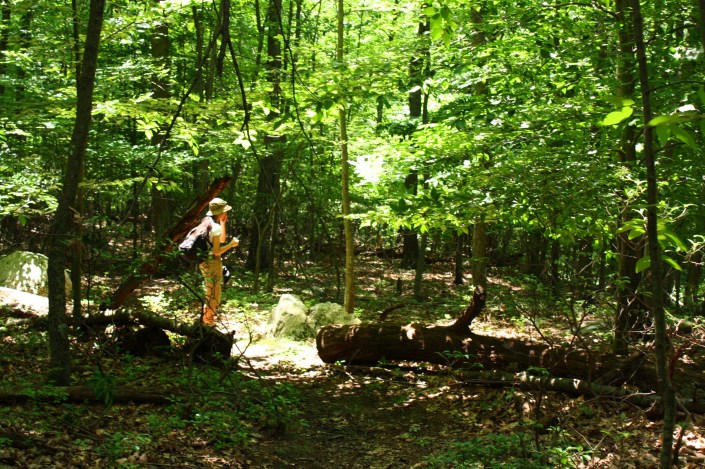

- Horseback Riding


- Rock Climbing
 d
d
- Skiing
(I don’t have any pictures of me actually skiing, but here’s the beautiful place we went to!)
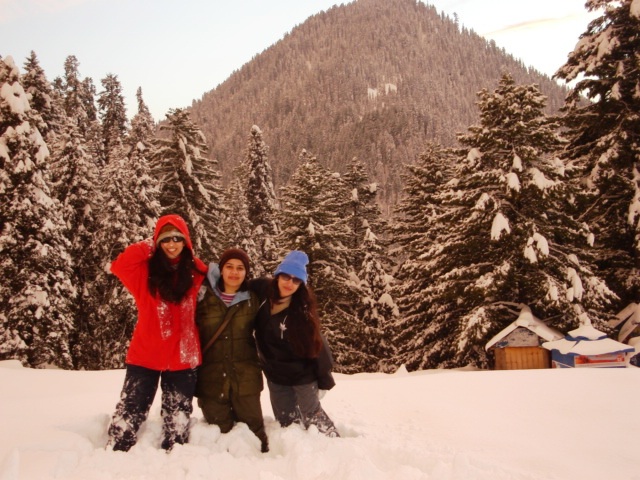

- Snorkeling


- Zip-lining
Lingering Fragrance
She needed some green in her apartment.
Before she bought furniture, she was at the flower shop – a subconscious evocation of a fecund childhood, romping in gardens, rolling in lawns, clambering mango trees, picking flowers in the morning for the breakfast table…
“Philodendrons, lilies, ferns, azaleas, bonsai…”
Hmm. She spends long minutes gazing at each plant, fingering the leaves, feeling the texture, inhaling its aroma.
“I’m sorry, I just can’t decide!” she smiles apologetically at the Chinese lady behind the counter. “Everything is lovely, but…” What do I want?
Then, among the flowering pots, in a tangle of pink, yellow, purple, red, blue, she spies a familiar star-shaped white…
She blinks, startled. Is it? It can’t be…bending forward, she buries her face in the modest little shrub bearing the two pale-faced flowers and takes a deep breath…
Suddenly, she’s not in Brooklyn.
She’s in a garden in Lahore on a warm summer’s night. The grass is damp from the afternoon rain. Crickets and other invisible creatures of the dusk trill madly in the bushes, and a velvety breeze rustles in the bougainvillea creepers and Gulmohar above, filling the air with a shower of orange and fuchsia…
It smells sweet, but a subtle kind of sweetness – of budding love, and clasping a dear one’s moist hand, of late-night drives and dewy white bracelets bought from the barefoot little boy on the curbside, of cooing pigeons and clouds of fluttering wings on the rooftop, of twinkling black eyes rimmed with kajal, white blooms wreathed in black hair, and the enveloping scent of flowers in a bride’s bedroom…
“So you want the jasmine, miss?” The Chinese lady grins, her cropped black head nodding vigorously, round black spectacles bouncing on her nose.
Jasmine! Motia…
“Yes, I’ll take the jasmine,” she nods vigorously back.
It sits on a windowsill in her apartment, in a modest little green pot – spreading its delicate, memory-laden perfume over the folds of her new life, a graceful remembrance, a lingering fragrance of the past.
Change
Humans are such creatures of habit.
We yearn for change, for tides and storms to break the uniformity of our days.
But when change comes, we recoil; we are unnerved, thrown into disarray, suddenly clinging to what we know, what is familiar.
Whether a change in city, neighbourhood, house, colleagues, friends.
Even the arrangement of books on a shelf, or spices in the kitchen cupboard – it agitates us.
Maybe it’s a sign of aging. Or maybe it’s just me, an earthbound Taurus.
The sea is beautiful, but standing on the shore looking out upon the interminable flatness, the ceaseless motion, I am intimidated. The sea does not calm me.
I prefer land, the solidity of a mountain, the rootedness of a good weathered tree – feet firm on the earth yet a head in the sky, nodding in the breeze, whispering leafy music, growing stronger, reaching higher.
I wish to be like that tree – not the water, not the ocean, heaved and hurled about with its vagaries – but to mature with the seasons, to sing with the clouds, to know my own depth.
When I was younger, the idea of being a carefree, freewheeling itinerant excited me – it was romantic, it was adventurous, it was what the heroines in my favourite novels were like – and a part of me still clings to that notion.
But a bigger part has accepted that I am earthbound – I am not not made of air, or fire, or water, but of deep, dense, redolent earth. I need to sow, to nest, to reap, to have spontaneity with order, to keep the scissors in the right drawer, to adore a particular film, writer, song, person; to be attached.
New York is becoming home.
Of New York Spring And Other Things
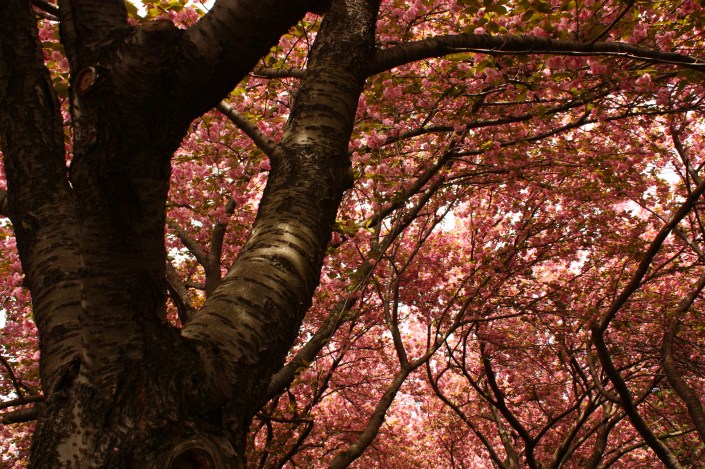
Published in the Express Tribune Blog, May 24th 2011
Growing up in Lahore, the monsoon was my favourite season – those muggy, motionless afternoons when the air suddenly exploded into a river of orange rumbling down from the sky, leaving jungles in its wake. In the Bay Area, every balmy day of the year was beautiful, except for the miserable characterless spluttering they called “rain”.
In Ithaca, my favorite season was Autumn – a firedance in the sky, bold and blazing, curling flames at your feet – and in New York, it has to be spring, the teenage of nature, blooming poetry from every stem, every lilting branch, a breathtaking ballet of pink and white to melt the numbest of hearts.
On such a blossomy New York morning last week, my colleague Ryan and I were at Ground Zero, jostling through hundreds of New Yorkers and out-of-towners to catch a glimspe of President Obama as he arrived to lay a wreath at the September 11th Memorial Site, giving symbolic “closure” to the victims and families of the 9/11 attacks following Osama bin Laden’s death.
We didn’t see him, not even a fluttering hand through a darkened car window. But Obama became irrelevant once we actually started talking to people and recording their reactions to the news.
Reactions were predictable: One African-American woman beamed with pride that Obama had been in office “to do this urgent and important duty”. A man who had lost four friends in 9/11 said he felt a sense of “relief” and “joy” beyond words; a young Latino-American who had recently joined the New York National Guard said that Osama’s death was a source of “unity” for the people of New York, that it showed “how Americans come, in all shapes and forms, whatever nationality you are, whatever colour you, you come as one.”
But what was unpredictable was these people’s, these ordinary, middle-class, tax-paying people’s calm acceptance of the fact that yes, this “war” was “not going to end with the death of one person”, and, more disturbingly, that it needed to go on, that it should go on. In the words of one 67-year old ex-Marine, “We have to be there in all of these countries to assist…so we can crush these people when they come in to try and hurt us. It’s not over.”
While Ryan asked the questions and I filmed behind the camera, I thought about the questions I would have liked to asked these people: “But do you know the real victims of your country’s fallacious war? Do you know who actually pays the price? What do you have to say to the families of the tens of thousands of innocent men, women and children killed in Afghanistan, in Iraq, in Pakistan because of this war? Were their lives less valuable than the 3,000 Americans who died here 10 years ago? Do you not see that what you’re calling ‘patriotism’ and ‘duty’ is decimating entire societies, entire nations as we speak?”
I said nothing of the sort. I was a journalist, and Pakistani on top of that, and the last thing I wanted to in that sort of crowd was get into an argument.
Turns out, somebody else was there to do it for me – a lanky, bespectacled and very articulate white dude by the name of Sander Hicks, founder of the “Truth Party”, a grassroots political group that believes in exposing, among other things, that 9/11 was a hoax. Wearing a black T-shirt with the words “9/11 Is A F****** Lie!” emblazoned on the front, Hicks shouted maniacally but fearlessly to the crowd, “Why am I here? Am I here to celebrate and validate a murder? Without a trial, without due process? Or am I here to think about what is really happening in our country? Do we justify war and torture based on 10 years of lies? I say no! And I don’t care if there’s a million people here saying I’m an a**hole, just for standing up for peace and truth!”
I’m still surprised that he got away with saying that, and a lot more, without even a scratch, though there were several jingos in the crowd who would’ve liked nothing better than give the provocative Hicks a square punch in the jaw. But shouting back “A** hole!” is about as far as they let their anger go.
Then, in the middle of the fray, a red-faced, white-mustachioed little man broke in. Wearing a black leather jacket covered in Vietnam insignia, he cried in a thick Texan drawl: “You know what I would’ve done if I were President when 9/11 happened? I would’ve nuked the entire Middle East, starting with Mecca!”
So far that day, I had been watching and listening to everybody almost in the third person, a perfectly neutral body. But at those words, I felt my heart plummet like it would at a vertical drop on a Seven Flags rollercoaster, and a row of goosebumps shot up my spine as if I were suddenly caught in an Arctic gale wearing a T-shirt. I looked up from the camera. My eyes stung; I thought I was going to cry.
It was pure reflex. Something essential and sacrosanct, seeded deep in my soul, had been momentarily convulsed, and at that moment I could’ve clawed out the old geezer’s eyes.
There was a collective gasp from the crowd, and people were quick to admonish, “No, no, that’s crazy!”, “Not all Muslims are bad!”. Clearly, the guy was a loony, and it would’ve been stupid to take anything he said seriously. But his words stayed with me long after his black leather jacket disappeared into New York’s hubbub of loonies, and I thought, “So this is how it feels – to be on the ‘other side’ of extremism?”
We’ve had plenty loonies from our part of the world dispense similar tirades about the West, about the U.S., Europe or Israel – and God knows I’m not a fan of those parts of the world or their foreign policies. But to an ordinary citizen, who has as little control over what their government does as we do over ours, how would it feel, to be so sweepingly abused, to hear people talk about obliterating our very existence, burning flags and defacing temples as if it would have no consequences, as if it would offend or incite nobody; even for someone like me, deeply suspect of nationalism and all other -isms in general, I admit that it would hurt – that it does hurt.
It’s complicated. It’s complicated when imperialism is involved, when capitalism and neo-colonialism is involved, when there is a legitimate anger and resentment and struggle for justice, like in Palestine, or Iraq, Afghanistan and Pakistan. It’s difficult to talk without the invective, without the bitterness, when you have been truly wronged; but all I can say is, let’s let humanity win.
That’s all we have, to keep us alive and save us from total catastrophe. At the end of the day, it’s the ordinary citizen’s sympathies and consicence that we can appeal to, we can touch; it’s their ordinary humanity that we can depend on, not any politician’s or government’s. Let’s not sacrifice that, no matter which ‘side’ we come from.



